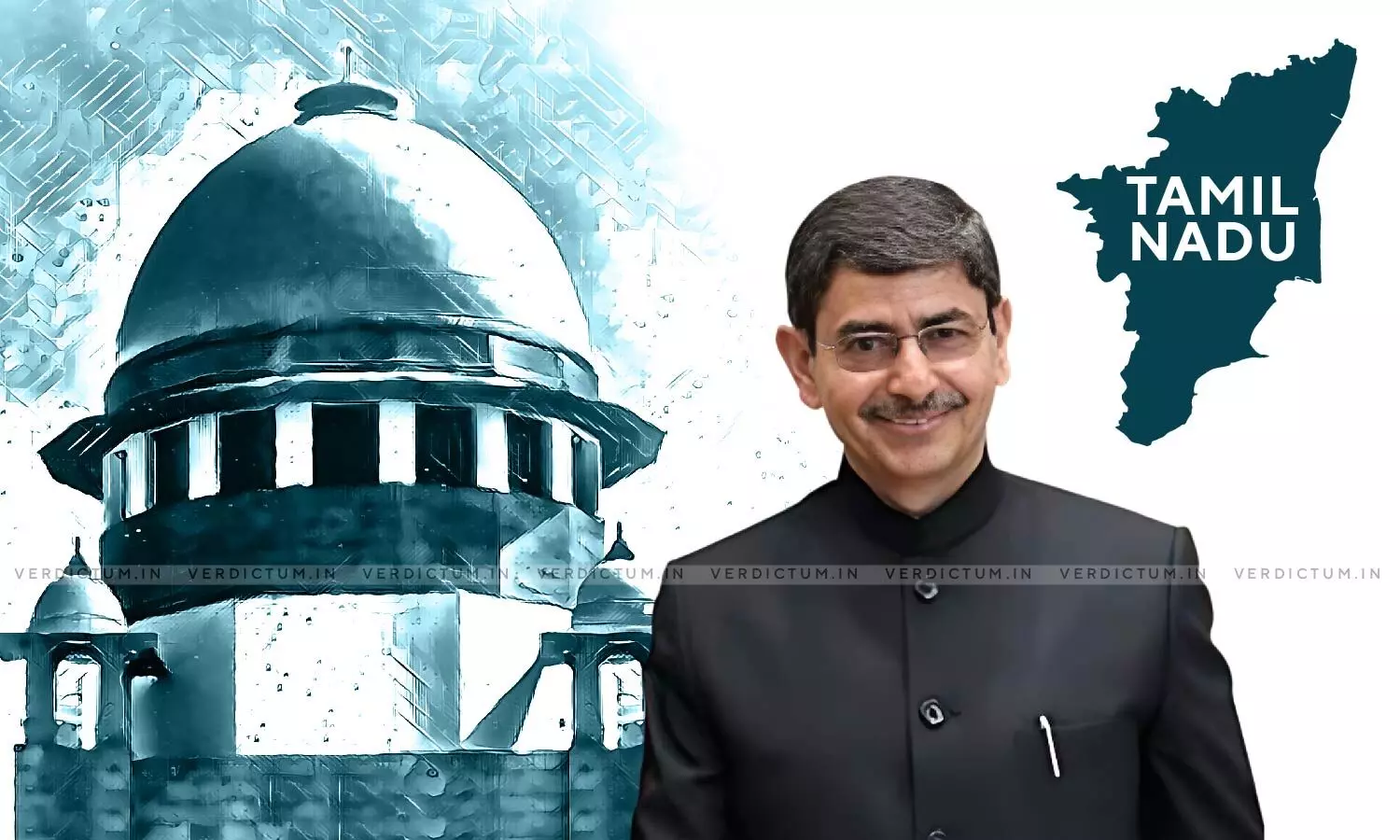
Bringing Entire Administration To Grinding Halt: Tamil Nadu Approaches Supreme Court Against Governor's Alleged Inaction
 |
|The State of Tamil Nadu has recently filed a Writ Petition in the Supreme Court under Article 32 of the Constitution, challenging the Governor of Tamil Nadu's alleged inaction and delay in considering the Bills passed by the Tamil Nadu State Legislature, as well as the Governor's alleged failure to review and sign off on various files, government orders, and policies forwarded by the State Government.
Terming the inaction of the Governor of Tamil Nadu as unconstitutional, unreasonable, and a malicious exercise of power, the Writ Petition asserts that this inaction is causing a complete standstill in the administration and fostering an adversarial relationship by not cooperating with the State administration.
The Petition moved through the Advocate-on-Record Sabarish Subramanian states, "The Governor by not “signing remission orders, day to day files, appointment orders, approving recruitment orders, granting approval to prosecute Ministers, MLAs involved in corruption including transfer of investigation to CBI by Supreme Court, Bills passed by Tamil Nadu Legislative Assembly” is bringing the entire administration to a grinding halt and creating adversarial attitude by not cooperating with the State administration."
It has also been stated that Dr. RN Ravi, the Governor of Tamil Nadu has positioned himself as a political rival to the legitimately elected Government by hindering and obstructing the Legislative Assembly's ability to carry out its legislative duties by unjustly and excessively delaying the consideration of bills that the Assembly has passed.
The State Government points out an example of a situation where there are only four members in the Tamil Nadu Public Service Commission (CC) compared to the required fourteen. State in the Petition submits that, as a result of the Governor's inaction, numerous applications for the appointment of the Chairman and members of the Commission, as mandated by Article 316 of the Constitution of India, are still pending.
The Petition also highlights that by denying sanction when the investigative authorities have found prima facie evidence of corruption and have asked for permission to prosecute, the Governor is engaging in politically motivated conduct. "The Governor’s inactions have caused a constitutional deadlock between the Constitutional Head of the State and the Elected Government of the State. That by not acting upon their Constitutional functions, the Hon’ble Governor is toying away with the citizen’s mandate", reads the Petition.
The Writ Petition also states that by virtue of Articles 200 and 163 of the Constitution, when a Bill passed by the Legislature of a State is presented to the Governor, he has four options, namely, a) he assents to the Bill; b) he withholds assent; c) he reserves the Bill for the consideration of the President; or d) he returns the Bill to the Legislature for reconsideration.
It also argues that the satisfaction required by the Constitution is not the personal satisfaction of the President or of the Governor but is the satisfaction of the President or of the Governor in the constitutional sense under the Cabinet system of Government.
Further relying on several catena of the Judgements of the Supreme Court, the State in the Petition submits that the “Assent” of the Governor/President do not involve any element of discretion of the individuals occupying the said posts but the “Assent” should only be based on the “aid and advice” of the Council of Ministers of the concerned province/Union qua the passage of the Bill unless the said Bill endangers the powers of the High Court as per second proviso to Article-200 of the Constitution.
Cause Title: The State of Tamil Nadu v. The Governor Of Tamil Nadu